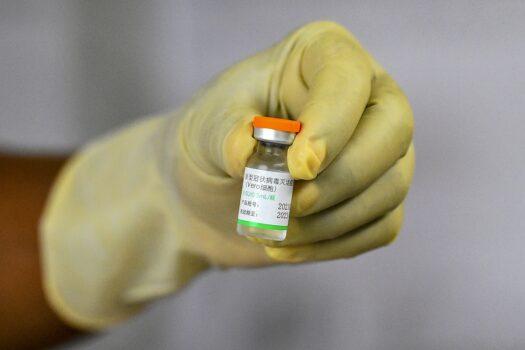Nevertheless, the prime minister confirmed that, “Our challenge is nothing less than to reinforce, renovate, and buttress a world order that favours freedom.”
This is the message that Morrison will bring to the Cornwall G7 (Group of Seven) meeting of advanced liberal democracies, which includes Canada, France, Germany, Italy, Japan, the United Kingdom, and United States.
Australia, for the third year in a row, has been invited to participate, along with South Korea, South Africa, and India.
Morrison repeatedly referred to Australia as a “liberal democracy.” This is somewhat surprising, considering Australia is inexorably entering a dangerous illiberal period in its existence.

Australian governments, whether they be state or federal, have been surrendering to the illiberal demands of progressive interests in society. They have condoned the introduction of social engineering laws, for example anti-vilification legislation, and created safe-access zones around abortion clinics, thereby limiting freedom of movement and the peaceful expression of views.
There are many laws and practices that demonise freedom of religion, while free movement has been decisively curtailed in this COVID era. This has, in turn, resulted in greater surveillance and violations of privacy rights.
Hence, the prime minister’s confident assertion that Australia is a “liberal democracy” does come across as vacuous in some respects.
The address, however, is not important for what it says but is interesting for what it omits.
Specifically, although the prime minister confirmed that Australia’s interests lie in the Indo-Pacific, he did not directly discuss the nation’s tenuous relationship with the People’s Republic of China.
Nevertheless, a close reading of the speech reveals obvious hints towards Beijing’s increasing belligerence in the region.
Morrison firstly acknowledges that the global trading system and rules-based order “is under serious strain and threat.” He also asserts that Australia “will be an advocate for a free and fair rules-based system for international trade founded on open markets.”
The prime minister is pushing for reform to the World Trade Organisation (WTO), while acknowledging its flaws, and regards the organisation as the “most practical way to address economic coercion.”

The WTO’s dispute resolution mechanism is found in the “Understanding on Rules and Procedures Governing the Settlement of Disputes (DSU).”
In the event of a dispute, a member state has the right to request a consultation at the WTO. The opposing member state then must reply within 10 days and begin consultations in good faith within 30 days.
If consultations fail, the member state may ask for the establishment of a panel, where a report and ruling will be handed down. An appeal against the decision is available in Article 17.1 of the DSU, which allows for a standing appellate body to be setup.
The appellate body, however, has not had the required number of members to hear appeals since 2019.
Morrison’s reference to a “rules-based international order” and a reliable and “effective dispute resolution mechanism” is undoubtedly a reference to ongoing proceedings, launched in December last year, with China over tariffs that were implemented on Australia’s barley exports.
Former Trade Minister Simon Birmingham said at the time, “Whilst Australia respects China’s right, as with any nation, to undertake domestic investigations into anti-dumping matters, we do not agree with China’s decision to impose anti-dumping and countervailing duties on Australian barley.”
Consultations stalled in January this year, with Australia requesting a panel be established in March. A report is now due, which could be appealed to the appellate body.
The Australian prime minister’s comments on repairing the WTO’s appellate body system have merit.
Indeed, one of the weaknesses of the appellate body lies in its limitation to only deal with issues that have been “covered in the panel report and legal interpretations developed by the panel.”
A further weakness is that non-state entities (private companies etc.) do not participate directly in the WTO dispute process and have no enforceable right to compel their government to file a complain on their behalf.
Another notable aspect of Morrison’s speech is that he does not mention directly Beijing’s geopolitical ambitions, notably its incursions in the South China Sea, its extinguishment of the civil rights of Hong Kong residents, or its retaliation to Australia’s push to establish an independent expert committee to investigate the origins of the COVID-19 pandemic.

The closest the prime minister comes to identifying China is his statement that the escalation of “great power strategic competition” potentially threatens Australian security and prosperity.
He says, “Rapid military modernisation, tension over territorial claims, heightened economic coercion, undermining of international law, including the law of the sea, through to enhanced disinformation, foreign interference and cyber threats, enabled by new and emerging technologies.”
This comment, however, is largely self-serving due to Western Australia’s heavy reliance on China as an export market for its mining industry.
The most contentious statement in the prime minister’s speech is his insistence that “liberal democracies work.” I would argue that getting Australia’s house in order—by spending more time nurturing the rights to freedom domestically—is just as critical an objective, if not more manageable, for the prime minister.





